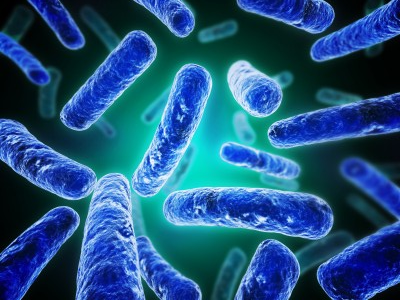I recently completed a webinar during the “Future of the Microbiome” event, where I discussed the addition of botanicals to the microbiome conversation. After presenting, I felt compelled to write this blog. One thing I gleaned from my preparation to give the presentation was that plants (botanicals) should play a significant role in formulating products for the microbiome. The latest trend is to talk about the gut__-axis. The blank can equal brain, immune, joint, metabolic, oral, skin, women, and many other less popular topics. Additionally, many botanicals we know directly impact the microbiome by supporting motility, inflammatory health, liver activity, fiber, prebiotic effect, hydration, and so much more.
Direct Impact
We see some fantastic ingredients if we take a closer look at the botanicals that directly impact gut health. Generically speaking, botanicals such as aloe, boswellia, chamomile, ginger, green tea, milk thistle, mullein, and slippery elm are all regularly considered beneficial. With increased science, we now see some branded ingredients that fit into the gut health arena. Examples are Altilix® (artichoke) for liver health, AstraGin® for overall gut health and tight junction support, Mucosave FG (prickly pear/olive leaf) for mucosal lining support and acid reflux, HydroCurc® (turmeric/curcumin) for multiple areas of gut support and 4Liver (myrobalan/Indian globe thistle) for liver support.
The above is not the definitive list and provides some conceptual ideas for improving overall gut health depending on the desired outcome.
Semi-Direct Impact: Polyphenols and Gut Health
I love learning new things and recently learned that polyphenols are great prebiotics. An example is the polyphenols from grapes. Here are powerful statements to encourage using polyphenols in a microbiome-supporting product.[i] [ii]
- The effect of polyphenols on the intestinal microbiota is achieved by influencing the growth and metabolism of bacteria (prebiotic activity).
- Recent studies demonstrated the beneficial effect of grape polyphenols by stimulating bacteria such as Akkermansia muciniphila (AM). AM has positive influences in several areas that influence weight management (for example, insulin resistance.)
- Red grape extract or grape seeds were observed to have many benefits by increasing important probiotics such as Lactobacillus reuteri, Lactobacillus acidophilus, Clostridiales, and Ruminococcus. (A positive impact on the microbiome)
While these are all related to grape polyphenols, research shows that polyphenols, in general, not just those from grapes, have a positive impact on the gut.[iii] Let’s take a look at some ingredients that fit the polyphenol model and also have research in other areas related to gut health.
Gut-Brain-axis
A great example of a grape extract for our conversation is Cognigrape. Cognigrape is high in the polyphenols anthocyanins and proanthocyanidins and can improve cognitive performance in elderly people by acting on attention and immediate and delayed memory.[iv] If I were formulating a product to fit into the gut-brain axis, Cognigrape would be at the top of my list because of the science on cognition, which is high in grape polyphenols.
Gut-Joint-axis
HydroCurc® is a perfect example for the joint health category; not only is HydroCurc® (turmeric/curcumin) high in polyphenols, but it has multiple clinical studies showing its benefits for joint health and discomfort. Again, it is a two-for-one in that HydroCurc® has been studied for specific joint health but also contains polyphenols that benefit gut health.
Gut-Immune-axis
For this ingredient, we will go to the Mediterranean and Olivactive. Olivactive is derived from olive leaves, which are also high in polyphenols.[v] Olivactive is high in oleuropein, a powerful polyphenol that research has shown is a powerful antioxidant and impacts the immune system in multiple pathways. [vi]
Gut-Metabolic-axis
We will stay in the Mediterranean again with the ingredient Morosil (red moro orange). Red Moro oranges are high in anthocyanins (polyphenols), and research completed with Morosil shows they impact body weight, waist circumference, and hip circumference.
Gut-Skin-axis
We will see amla listed if we refer to the list of ingredients with specific effects on gut health. Amla is also high in polyphenols, and research shows it is an excellent skin health, primarily in control of collagen metabolism.[vii] Who doesn’t like a two-for-one special?
For those wishing to step out of the norm and get creative with your microbiome products or your existing structure function products, why not do both simultaneously? A few extra minutes of researching botanicals high in polyphenols and having research in other areas of health will open the door to helping consumers achieve the health benefits they (we) seek.
[i] Plamada D, Vodnar DC. Polyphenols-Gut Microbiota Interrelationship: A Transition to a New Generation of Prebiotics. Nutrients. 2021 Dec 28;14(1):137. doi: 10.3390/nu14010137. PMID: 35011012; PMCID: PMC8747136.
[ii] Jian H, Liu Y, Wang X, Dong X, Zou X. Akkermansia muciniphila as a Next-Generation Probiotic in Modulating Human Metabolic Homeostasis and Disease Progression: A Role Mediated by Gut-Liver-Brain Axes? Int J Mol Sci. 2023 Feb 15;24(4):3900. doi: 10.3390/ijms24043900. PMID: 36835309; PMCID: PMC9959343
[iii] Wang X, Qi Y, Zheng H. Dietary Polyphenol, Gut Microbiota, and Health Benefits. Antioxidants (Basel). 2022 Jun 20;11(6):1212. doi: 10.3390/antiox11061212. PMID: 35740109; PMCID: PMC9220293.
[iv] Calapai et al., 2017 A Randomized, Double blinded, Clinical Trial on Effects of a Vitis vinifera extract on Cognitive Function in Healthy Older Adults. Front. Pharmacol. 8:776.
[v] Barbaro B, Toietta G, Maggio R, Arciello M, Tarocchi M, Galli A, Balsano C. Effects of the olive-derived polyphenol oleuropein on human health. Int J Mol Sci. 2014 Oct 14;15(10):18508-24. doi: 10.3390/ijms151018508. PMID: 25318054; PMCID: PMC4227229.
[vi] Barbaro B, Toietta G, Maggio R, Arciello M, Tarocchi M, Galli A, Balsano C. Effects of the olive-derived polyphenol oleuropein on human health. Int J Mol Sci. 2014 Oct 14;15(10):18508-24. doi: 10.3390/ijms151018508. PMID: 25318054; PMCID: PMC4227229.
[vii] Fujii T, Wakaizumi M, Ikami T, Saito M. Amla (Emblica officinalis Gaertn.) extract promotes procollagen production and inhibits matrix metalloproteinase-1 in human skin fibroblasts. J Ethnopharmacol. 2008 Sep 2;119(1):53-7. doi: 10.1016/j.jep.2008.05.039. Epub 2008 Jun 6. PMID: 18588964.

